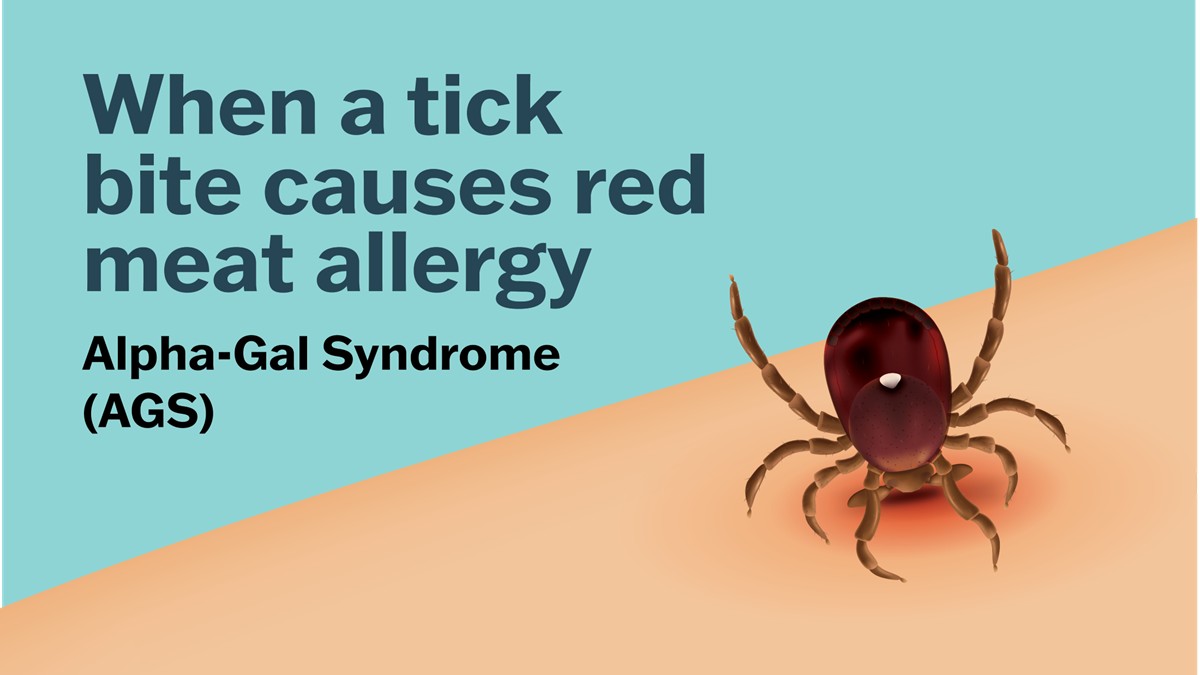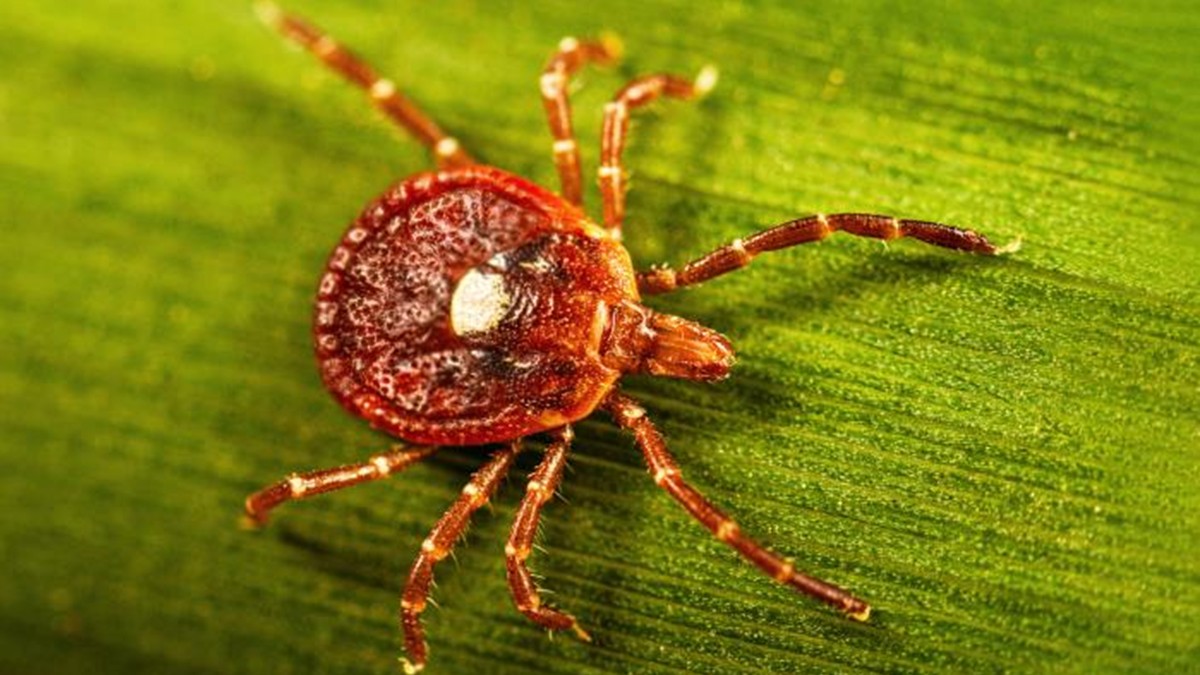Key points
- Alpha-gal syndrome (AGS) is a serious, potentially life-threatening allergy to alpha-gal that can develop after a tick bite.
- Alpha-gal is a molecule found in most mammals, such as cows and pigs, but not in people.
- People with AGS can have an allergic reaction after eating red meat or being exposed to products containing alpha-gal.
- The best way to protect yourself and your family from AGS is to prevent tick bites.

What is alpha-gal syndrome?
Alpha-gal syndrome (AGS) is a serious, potentially life-threatening allergy and tickborne disease. Alpha-gal is a molecule (galactose-α-1,3-galactose) that is naturally produced in the bodies of most mammals but not in people. It is also found in the saliva (spit) of some ticks.
When a tick bites, it can transfer alpha-gal from its saliva into a person's blood. The body's natural defenses, or immune system, can identify alpha-gal as a threat and trigger an allergic reaction. Symptoms occur after people eat red meat or are exposed to other products made from mammals. Because of this, AGS is also known as red meat allergy or tick bite meat allergy.

Nearly 450,000 people may be affected
More than 110,000 suspected cases of AGS were identified between 2010 and 2022. However, cases of AGS are not nationally notifiable to CDC. The actual number of AGS cases in the United States is not known, but as many as 450,000 people may be affected. More data and research are needed to understand how many people are affected by this condition.
Risk factors
AGS is caused by tick bites. In the United States, AGS is primarily associated with the bite of a lone star tick, and less commonly by the bite of a blacklegged tick or a western blacklegged tick. In other countries, other tick species have been linked to AGS. In the United States, not every person bitten by a lone star, blacklegged, or western blacklegged tick will develop AGS.
While people of all ages can develop AGS, most cases have been reported in adults.
Most reported cases of AGS in the United States occur in South, East, and Central states. These are the areas where most lone star ticks are found.
Causes
While AGS is caused by tick bites, more research is needed to understand the role of ticks in this condition. The reason why certain people develop AGS and others do not is not known.
Prevention
The best way to protect yourself and your family from developing AGS is to prevent tick bites.
Diagnosis
A healthcare provider may diagnose AGS by:
- A physical examination
- A detailed patient history
- A test for antibodies your body produces in response to alpha-gal
Your healthcare provider may also recommend allergy skin testing to identify reactions to allergens like pork and beef.
Living with AGS
AGS should be managed under the care of an allergist or other healthcare provider.
Most healthcare providers recommend patients with AGS stop eating meat from mammals, such as beef, pork, lamb, venison, or rabbit. However, not all patients with AGS have reactions to every product containing alpha-gal.
